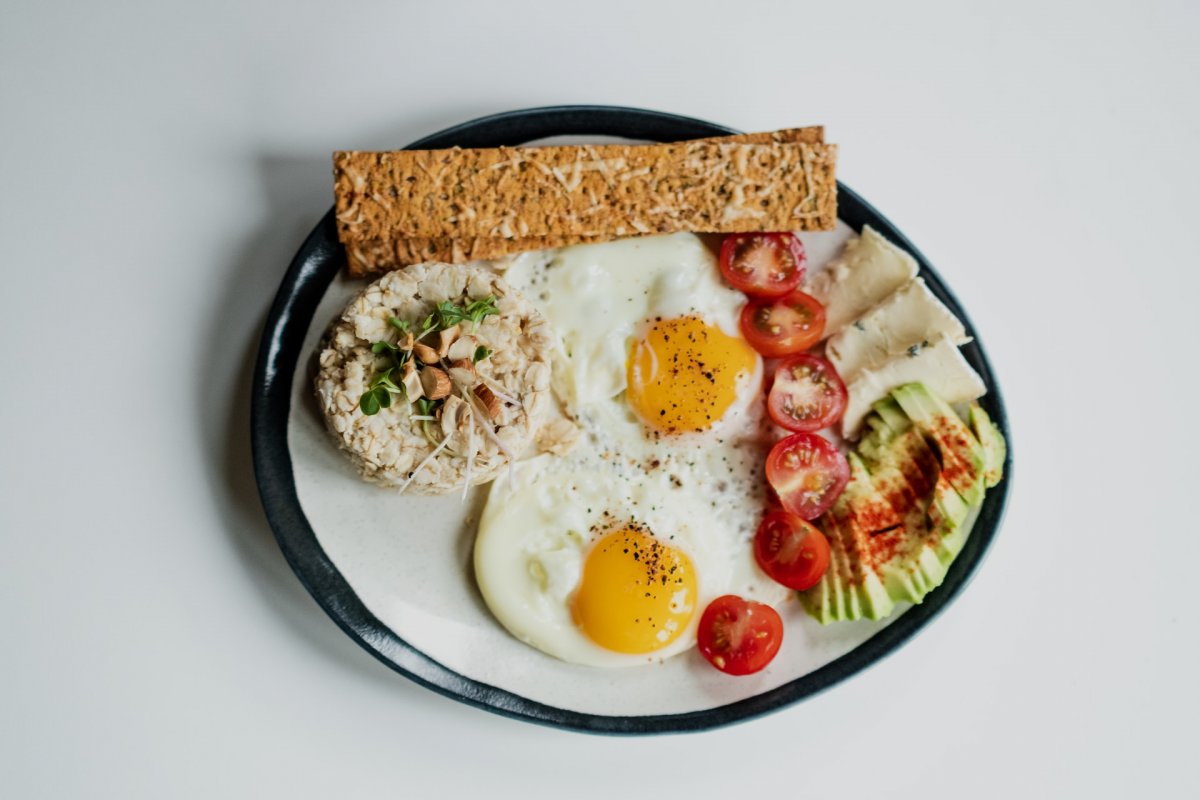
A delicious breakfast can become the first event of the day and even make us get out of bed. But what morning meal is really good for us and keeps us feeling full for a long time?
No matter how busy the morning is, you shouldn’t skip breakfast.
“The body should receive nutrition evenly throughout the day,” says nutritionist Vasilisa Ponomareva especially for MedicForum.
Morning meals are especially important for children and young people.
“Otherwise they will definitely not have concentration on school tasks and tasks.”
But what kind of breakfast will keep you feeling full for a long time and at the same time cover your nutritional needs well?
1. Wheat toast with jam or chocolate cream
Toast with sweet spread is a simple breakfast that almost everyone likes.
“Toast and jam made from white flour contain a lot of quickly digestible carbohydrates, which quickly enter the bloodstream.”
Initially, this gives an energy boost. But it also releases large amounts of insulin, a hormone that regulates blood sugar levels.
“After an hour, your blood sugar drops so low that you start craving food.”
Additionally, chocolate cream, for example, lacks important nutrients. It contains a lot of saturated fatty acids, which we usually already consume in sufficient quantities from animal products and which do not exactly improve blood lipid levels. But this does not mean that toast is taboo. As a sweet ending, you can eat something healthy beforehand.
2. Oatmeal with milk or yogurt
One way to make a meal complete is to add yogurt or milk to it.
“We should choose protein for every meal.”
She advises starting your meal with protein. For example, eat two spoons of yogurt in advance and only then mix the muesli. This limits the increase in insulin at the very beginning.
Anyone who eats fruit and oatmeal is primarily consuming complex carbohydrates. They provide lower insulin release than simple carbohydrates such as white toast. This means we stay fuller longer.
Oatmeal also has a blood sugar regulating effect thanks to its fiber. If the oats were cooked with milk, they were able to pre-puff up and also absorb fats and proteins.” This makes them easier to digest.
Fruits also contain vitamins and minerals, but, of course, sugar. Therefore, Ponomareva recommends several pieces as an amount. It could be an apple or half a banana.
3. Whole grain bread with cheese and cucumber
Another thing that will keep you feeling full for a long time: whole grain bread. For example, bread made from whole grain spelled or rye produces less insulin than light wheat toast.
“In addition to fiber and protein, it contains a variety of vitamins and minerals, all of which are found in the whole grain.”
When it comes to cheese, it's important to consider the fat content to avoid too many saturated fatty acids .
You shouldn't skimp on vegetables. For example, cucumber contains minerals and water-soluble fiber.
4. Smoothie
If it’s a smoothie, then make it yourself. Nutrition experts don't recommend classic supermarket smoothies with multiple types of fruit.
“So much fructose packs into a very small space that our livers are overloaded.”
If you make your own smoothies, you should also throw some vegetables into the blender.
“An apple and then like spinach and celery, some yoghurt, that would be ideal. It works in the form of cottage cheese, yogurt.”
5. Scrambled eggs with bacon
A typical American breakfast seems tempting at first glance, including from a nutritional point of view: high in protein and low in blood sugar. But a fried breakfast lacks carbohydrates and vegetables.
“There is too much fat in bacon. “It's not a good idea for everyday life.”
But scrambled eggs can also be healthier if you combine them with a large serving of vegetables and whole grain bread.
Good to know: It's recommended to only eat two to three eggs a week .
Earlier, MedicForum wrote about reducing cholesterol through proper nutrition.
Important! Information is provided for reference purposes. Ask a specialist about contraindications and side effects and under no circumstances self-medicate. At the first signs of illness, consult a doctor.
